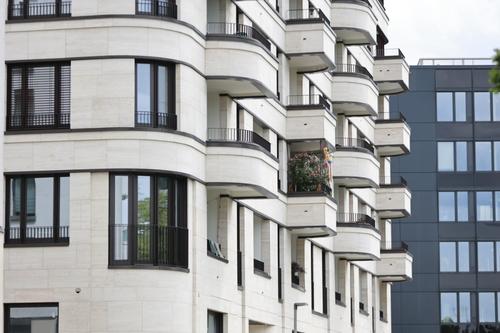Finding Accommodation in Berlin
Berlin is constantly bustling, with visitors from all around the world arriving for both short and long stays, so finding accommodation can be a challenge and requires some patience. It is recommended that you begin to arrange the details as early as possible and understand that a short-term accommodation in the first few weeks of your stay might be necessary. It is often easier to find accommodation once you are already in the city. Generally, you can anticipate a monthly rent of around 500 euros for a room in a shared flat and up to 1000 euros for a one-room apartment, depending on the apartment size, condition, and location within the city.
Types of Accommodation
In Berlin, you’ll find several common types of apartments, each suited to different needs and lengths of stay. Furnished (möbliert) apartments are a convenient option for short- to medium-term stays, typically including all basic furniture and household items. Unfurnished (unmöbliert) apartments, more suitable for longer stays, often come without furniture—and in many cases, without a built-in kitchen or light fixtures, so be prepared to equip the space yourself.
Another popular option, especially among students and young professionals, is the shared apartment, or Wohngemeinschaft (WG). In a WG, residents have their own private room and share communal spaces like the kitchen and bathroom. These can be zweck-WGs (functional co-living, focused mainly on sharing costs) or more socially oriented non-zweck-WGs, where housemates live more communally and often engage in shared activities. If you are interested in living in a WG, it is important to ensure that you can obtain an official registration of your residence there at your local Citizen Office.
Protect Yourself from Fraud
Essential Flat-Finding German Vocabulary
Official registration of your residence with the city (mandatory within 14 days of moving in, after initial 90-day residency).
Where to Search for Housing
In Berlin, it is possible to hire a licensed realtor (Immobilienmakler) to help you find an apartment, though many rentals are found through online portals or personal networks. If you choose to work with a realtor, they can assist in navigating the local market, arranging viewings and handling paperwork. By law, you only pay a commission (Provision) if you actively engage the realtor’s services; landlords are not allowed to pass on this cost to tenants. Always ensure you have a written agreement before committing to any payments.
Many tenants in Berlin turn to popular online portals like WG Gesucht, ImmoScount24, Kleinanzeigen and Facebook groups to hunt for flats or shared apartments, taking advantage of their extensive listings and filtering options. However, you should always stay vigilant for potential scams—never transfer deposits before seeing the place in person or verifying the landlord’s identity and insist on a proper rental contract. Ultimately, you are responsible for your own search, so cross-check listings across multiple sites, ask plenty of questions and trust your instincts if something seems too good to be true.
Your host institution may also provide an internal web portal with accommodation offerings or its own realty services and housing tips:-
Freie Universität: Cooperation with ERG Universitätsservice GmbH
-
Humboldt-Universität: Living in Berlin
-
Technische Universität: Housing in Berlin
-
Charité-affiliated researchers should consult HU or FU web pages

